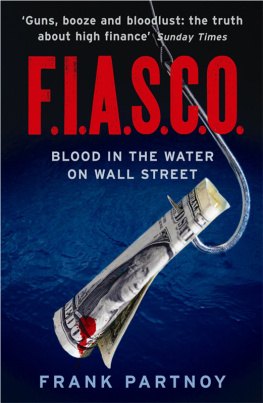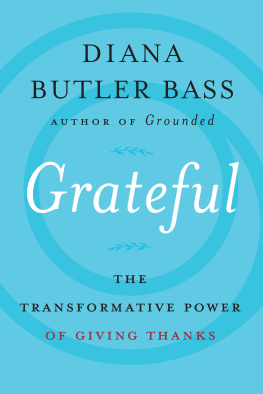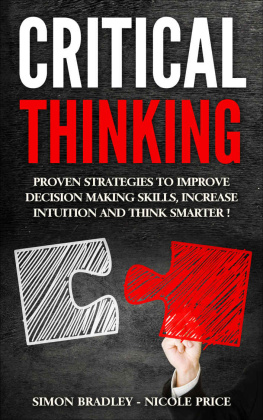Partnoy - Wait
Here you can read online Partnoy - Wait full text of the book (entire story) in english for free. Download pdf and epub, get meaning, cover and reviews about this ebook. publisher: PublicAffairs, genre: Romance novel. Description of the work, (preface) as well as reviews are available. Best literature library LitArk.com created for fans of good reading and offers a wide selection of genres:
Romance novel
Science fiction
Adventure
Detective
Science
History
Home and family
Prose
Art
Politics
Computer
Non-fiction
Religion
Business
Children
Humor
Choose a favorite category and find really read worthwhile books. Enjoy immersion in the world of imagination, feel the emotions of the characters or learn something new for yourself, make an fascinating discovery.

- Book:Wait
- Author:
- Publisher:PublicAffairs
- Genre:
- Rating:4 / 5
- Favourites:Add to favourites
- Your mark:
- 80
- 1
- 2
- 3
- 4
- 5
Wait: summary, description and annotation
We offer to read an annotation, description, summary or preface (depends on what the author of the book "Wait" wrote himself). If you haven't found the necessary information about the book — write in the comments, we will try to find it.
A renowned financial commentator and consultant explains the mysteries and transformative power of the well-time pause, and how delay can improve all kinds of decision-making
Partnoy: author's other books
Who wrote Wait? Find out the surname, the name of the author of the book and a list of all author's works by series.
Wait — read online for free the complete book (whole text) full work
Below is the text of the book, divided by pages. System saving the place of the last page read, allows you to conveniently read the book "Wait" online for free, without having to search again every time where you left off. Put a bookmark, and you can go to the page where you finished reading at any time.
Font size:
Interval:
Bookmark:
ALSO BY F rank P artnoy
F. I. A. S. C. O.
Infectious Greed
The Match King
AND SCIENCE
OF DELAY
FRANK PARTNOY

PublicAffairs
New York
Copyright 2012 by Frank Partnoy.
Published in the United States by PublicAffairs,
a Member of the Perseus Books Group.
All rights reserved.
No part of this book may be reproduced in any manner whatsoever without written permission except in the case of brief quotations embodied in critical articles and reviews. For information, address PublicAffairs, 250 West 57th Street, Suite 1321, New York, NY 10107.
PublicAffairs books are available at special discounts for bulk purchases in the U.S. by corporations, institutions, and other organizations. For more information, please contact the Special Markets Department at the Perseus Books Group, 2300 Chestnut Street, Suite 200, Philadelphia, PA 19103, call (800) 810-4145, ext. 5000, or e-mail .
Book Design by Pauline Brown
Typeset in 11.5 point Minion Pro by the Perseus Books Group
Library of Congress Cataloging-in-Publication Data
Partnoy, Frank.
Wait : the art and science of delay / Frank Partnoy.
p. cm.
Includes bibliographical references and index.
ISBN 978-1-61039-005-7 (e-book)
1. Procrastination. 2. Decision making. I. Title.
BF637.P76P37 2012
153.8'3dc23
2012010970
First Edition
10 9 8 7 6 5 4 3 2 1
For Fletch, again
T he dog on the cover of this booklets call her Maggieis a role model for those of us who want to make better decisions. Maggie could have devoured the biscuit resting on her snout in the blink of an eye. Instead, she is holding back, showing us she can keep her instincts and emotions in check, delaying the pleasure of the snack she can smell all too well. Although this book is mostly about human beings, not animals, its central point is that we can learn a lot from Maggie.
Maggie is, in a limited way, thinking about the future. She is acting a lot like my own dog, Fletch, a fourteen-year-old yellow Labrador retriever I trained as a puppy not to immediately go for a treat. Fletch probably cant think about the future for more than a few minutes, but his limited ability to anticipate consequences and delay gratification has served him well. If anyone in my family leaves food on the table after dinner, Fletch wont leap for it right away, when we probably would catch him. Instead, hell quietly follow us into the living room and lie down at my feet. We wont realize he has moved until we hear the crash of dishes from the kitchen.

In recent years, scientists have made great progress in comprehending how we make decisions. Psychologists have suggested we have two systems of thinking, one intuitive and one analytical, both of which can lead us to make serious cognitive mistakes. Behavioral economists have said our responses to incentives are often irrational and skewed, sometimes predictably so. Neuroscientists have taken pictures of our brains to show which parts react to different stimuli.
Yet we still dont understand the role time and delay play in our decisions and why we continue to make all kinds of timing errors, reacting too fast or too slow. Delay alone can turn a good decision into a bad one, or vice versa. Much recent research about decisions helps us understand what we should do or how we should do it, but it says little about when. Sometimes we should trust our gut and respond instantly. But other times we should postpone our actions and decisions. Sometimes we should rely on our quick intuition. But other times we should plan and analyze.
Although time and delay have not occupied a prominent spot in decision-making research, these concepts lurk behind the scenes, especially in discussions about human nature. Many scientists say the key skill that distinguishes However, thinking about the future is different from predicting it.
As a professor, I have studied law and finance for more than fifteen years. In 2008, when the financial crisis hit, I wanted to get to the heart of why our leading bankers, regulators, and others were so shortsighted and wreaked such havoc on our economy: why were their decisions so wrong, their expectations of the future so catastrophically off the mark? I also wanted to figure out, for selfish reasons, whether my own tendency to procrastinate (the only light fixture in my bedroom closet has been broken for five years) was really such a bad thing.
I interviewed more than one hundred experts in different fields and worked through several hundred recent studies and experiments, many as yet unpublished, in divergent areas of research. I noticed that decision researchers with different types of expertise do not cross paths very often. Frequently, they havent heard of each other. Decision research has become so sprawling that experts in one sub-area often dont know experts in another, even if they are tackling the same questions.
I decided, after a couple of years of thinking about decision-making and time, that in order to understand these concepts we should not look only to psychology or behavioral economics or neuroscience or law or finance or historywe should explore them all, simultaneously. I tried to assemble the mass of evidence from these disciplines as any good lawyer would, to illuminate and clarify arguments we might not see if we look from only one perspective.
The essence of my case is this: given the fast pace of modern life, most of us tend to react too quickly. We dont, or cant, take enough time to think about the increasingly complex timing challenges we face. Technology surrounds us, speeding us up. We feel its crush every day, both at work and at home. Yet the best time managers are comfortable pausing for as long as necessary before they act, even in the face of the most pressing decisions. Some seem to slow down time. For good decision-makers, time is more flexible than a metronome or atomic clock.
During superfast reactions, the best-performing experts instinctively know when to pause, if only for a split-second. The same is true over longer periods: some of us are better at understanding when to take a few extra seconds to deliver the punch line of a joke, or when we should wait a full hour before making a judgment about another person. Part of this skill is gut instinct, and part of it is analytical. We get some of it from trial and error or by watching experts, but we also can learn from observing toddlers and even animals. As we will see, there is both an art and a science to managing delay.
Font size:
Interval:
Bookmark:
Similar books «Wait»
Look at similar books to Wait. We have selected literature similar in name and meaning in the hope of providing readers with more options to find new, interesting, not yet read works.
Discussion, reviews of the book Wait and just readers' own opinions. Leave your comments, write what you think about the work, its meaning or the main characters. Specify what exactly you liked and what you didn't like, and why you think so.






